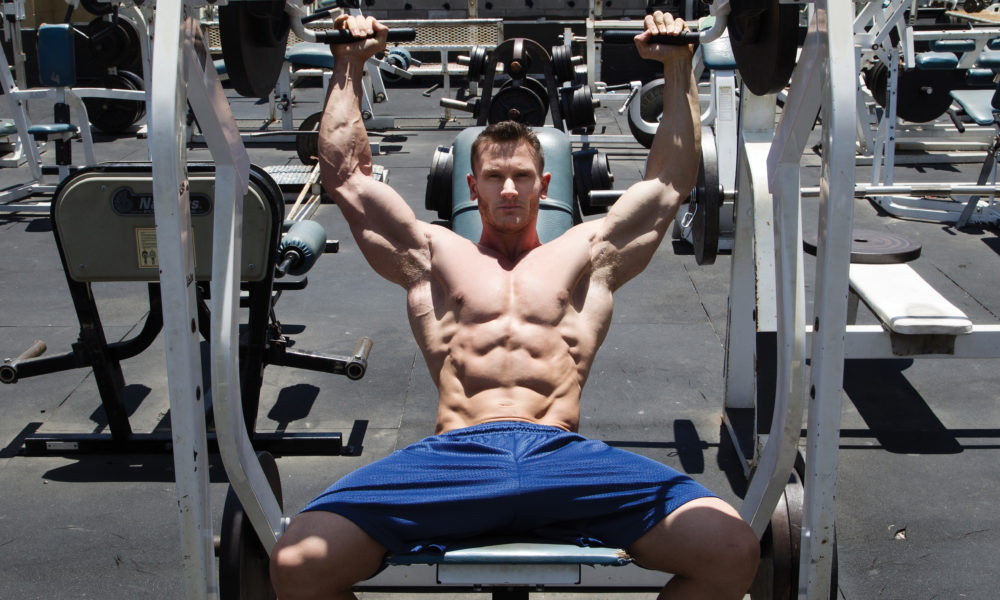

Relying on fitness technology can make your training better, but it can also make it worse.
By Thomas DeLauer
PQ: “I’m pretty confident that the pioneers of our sport would be disgusted with the lack of true connection that we have with our bodies, and unfortunately, much of it can be attributed to technology.”
The days of trusting your own judgment and your own process when it comes to dieting are beginning to come to an end. Personally, I sit at the tail end of an era where we’d rely on only the mirror and our willpower to dictate where we go with our training. Nowadays, there is so much in the way of technology that does this for us, it’s beginning to take some of the “mad scientist” guesswork out of building our bodies. I am here to submit this question: “Is the advent of fitness technology impacting our training in positive or negative ways?”
Allowing For Accountability
With products like MyFitnessPal, Lose It!, and a multitude of other training and diet apps, the ability to chronicle your food intake and training is right in front of us at all times. The advent of such technology allows for just about everyone to become their own diet expert and to truly hold themselves accountable. In the grand scheme of things, this is great!

But with such readily available access to technology, it can begin to do the job for you a little too well. For the person who would ordinarily need to become very in touch with themselves to find success, technology can stand in the way of learning how foods react with their bodies, or how a certain food may impact their physique and even their mind. Eating and logging simply becomes part of the daily data input and can get muddied along with other countless metrics and mental spreadsheets. In a sense, it takes the true understanding of what they are eating out of the equation.
Now for others, chronicling food intake with technology becomes something that helps them understand what they are doing. There are people that are simply wired in such a way where seeing what they eat and tangibly logging it is the only way that it will truly register in their minds. For these kinds of people, it can take the guesswork out of the equation. For others, that same guesswork can make bodybuilding a fun challenge.
A Change In The Industry
Gurus, coaches, trainers, icons. Do we need to listen to them anymore, or is the power really in our own hands now?
The internet has made it so information is accessible everywhere. Information on how to get healthy, information on how to get ripped, even information on how to do workouts with your dog (okay, that was my video). One would think that this would allow for us to have all the information we could ever want and apply it accordingly, right? Wrong.
Obesity rates are at an all-time high, people are even more confused about what to eat than ever, and people by and large aren’t getting much healthier. I can only speculate, but I think this is due in part to what is called “analysis paralysis,” or information overload. There is so much information there, we don’t know who to trust. We just become rampant consumers of information without ever putting a plan into effect.
If you look around or really start paying attention to how people react to motivation and intention, you will quickly see that people love the idea of getting healthy, or they love the idea of getting motivated, but that idea rarely become execution. This is big business for technology, but not big business for the overall end-goal: getting fit and healthy.
Am I saying that technology is hurting our goals and our results? Heck no. There are many ways that it helps us and gives us that extra bit of knowledge that we need to get through the workout or the daily grind of a diet. But there are a lot of goals that can be impeded by technology, and it all comes down to your mindset and how you’re ultimately wired. You need to make an honest assessment of your relationship with technology. Are you messing around with your smartphone because it’s enhancing your training, or is it distracting you from doing genuinely hard work?
Distraction In Action
“Let me finish this text and then I’ll do my next set.”
Do you get upset with the guy in the squat rack that is more focused on Instagramming a picture of his quad pump than he is with finishing his set? This is where technology can begin to really get in the way.

There is no doubt that there is a fair level of distraction when we talk about logging our workouts or food. That disconnect that I mentioned earlier is so subtle, yet so critical to whether or not we succeed with our goals.
At the end of the day, we have to remember that this is a sport or hobby that is all about being in tune with your body—knowing how it operates and what makes it tick. If the breaking of continuity in your thought is caused by your cell phone, you may want to rethink some things. I’m pretty confident that the pioneers of our sport would be disgusted with the lack of true connection that we have with our bodies, and unfortunately, much of it can be attributed to technology.
With that said, however, it’s once again all about mindset and how it’s framed in your mind. If technology is used as a stepping-stone that helps you get to that next level of health and fitness, then more power to you, because you have managed to identify where you can use it to your true advantage. But I invite you to be a bit more introspective and truly identify if it is helping you or hurting you. There is a truly fine line.
To be clear and honest, I’m no saint when it comes to this. I have been sucked into the world of technology to the point where it has affected my workouts. In fact, that’s what prompted me to write this column. For anyone who is truly trying to get the most out of their diets and their training, I urge you to be aware, be mindful, and understand where technology lifts you up and where it holds you down. IM






















You must be logged in to post a comment Login